Remembrance Sunday: Royal Family lead tributes to nation's war dead
Politicians, Royal Family members and veterans have commemorated those who lost their lives in conflict as the UK marks Remembrance Sunday.
At 11:00 GMT, a two-minute silence was held across the country.
Boris Johnson, Jeremy Corbyn and Jo Swinson broke away from the election campaign to attend the annual ceremony at the Cenotaph in London.
Prince Charles laid a wreath of poppies during the service on behalf of the Queen, who was watching from a balcony.
The Duke of Cambridge and Duke of Sussex followed their father in laying wreaths.
The Queen, dressed in black, stood beside the Duchess of Cambridge and Duchess of Cornwall as she viewed the commemorations.
The Duchess of Sussex looked on from another balcony with the Countess of Wessex and Vice Admiral Sir Tim Laurence.
The beginning and end of the two minutes' silence were marked by the firing of a gun by the King's Troop Royal Horse Artillery.
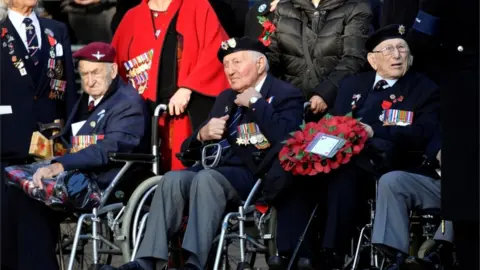 Reuters
Reuters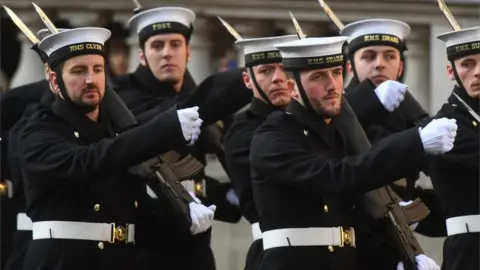 PA Media
PA Media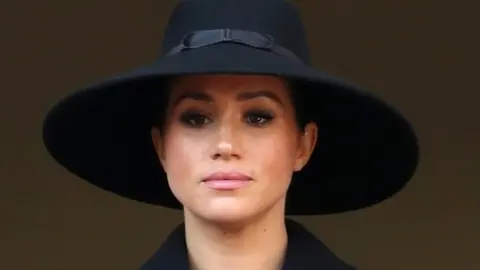 Getty Images
Getty Images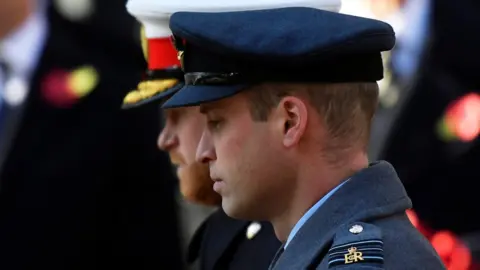 Reuters
ReutersThe commemorations at the Cenotaph honoured the armed forces community, British and Commonwealth veterans, the allies who fought alongside the UK and the civilian servicemen and women involved in the two world wars and later conflicts.
Cabinet ministers, religious leaders and representatives of Commonwealth nations attended alongside more than 800 members of the armed forces.
A royal aide laid a wreath on behalf of the Duke of Edinburgh, who retired from royal duties in 2017.
For the first time, the ambassador of Nepal placed a wreath to honour the contribution Gurkha regiments have made to the UK's military campaigns over two centuries.
In another first, the intelligence services were honoured during the ceremony, with Foreign Secretary Dominic Raab and Home Secretary Priti Patel laying wreathes on their behalf.
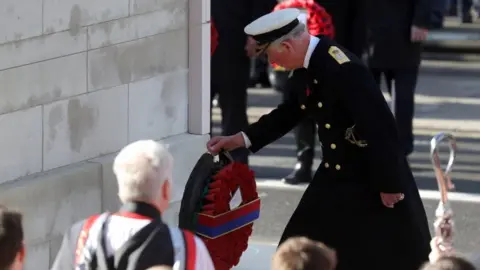 Getty Images
Getty Images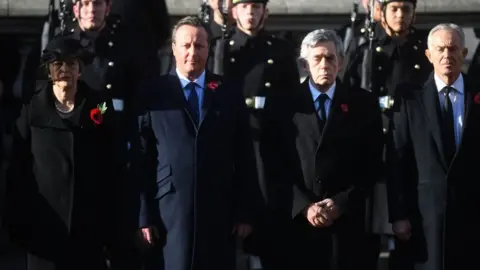 PA Media
PA Media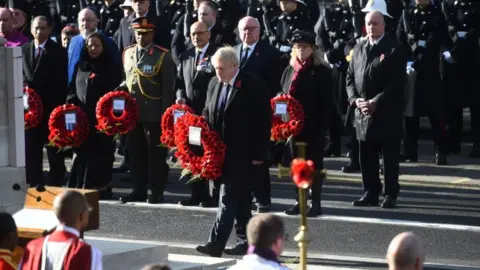 PA Media
PA Media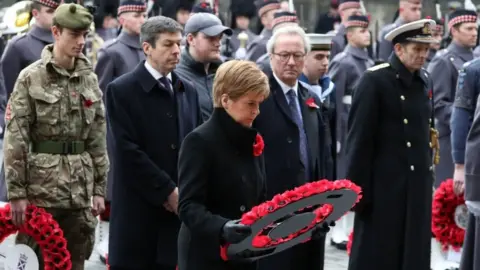 PA Media
PA MediaFive former prime ministers Sir John Major, Tony Blair, Gordon Brown, David Cameron, and Theresa May, were all present.
After wreaths were laid, Bishop of London Dame Sarah Mullally led a service that ended with the Royal Air Force sounding the bugle call, Rouse.
Following the service, crowds lined the streets in the winter sun to watch as up to 10,000 war veterans marched in a slow procession past the war memorial.
Regiments and societies walked past the Cenotaph in groups, their pace matching the drum beat of a brass band.
Some wheelchair-using veterans left their chairs behind and walked the distance instead, their medals sparkling on their lapels.
World War Two veteran Ron Freer, 104, who is blind, is thought to be the oldest person to have marched at the Cenotaph this year.
The Remembrance Sunday commemorations always hold "special significance" for him because his father was killed in 1918 and is buried at Dernancourt Communal Cemetery in the Somme, France, according to Blind Veterans UK.
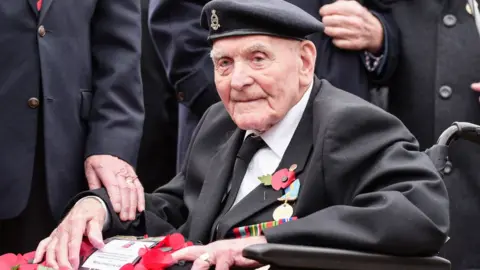 Blind Veterans UK
Blind Veterans UKSpeaking ahead of the ceremony, Mr Johnson said he would be "proud" to lay his first wreath at the Cenotaph as prime minister, and vowed to continue to "champion those who serve today with such bravery in our military".
He later posted on Twitter: "We will remember them."
Labour leader Mr Corbyn said: "It was an honour meeting and hearing the stories of veterans, and all those who came to pay their respects."
He earlier said in a video message that many serving personnel, veterans and their families were "not getting the support they deserve".
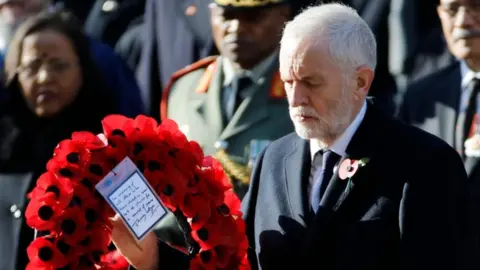 AFP/Getty Images
AFP/Getty Images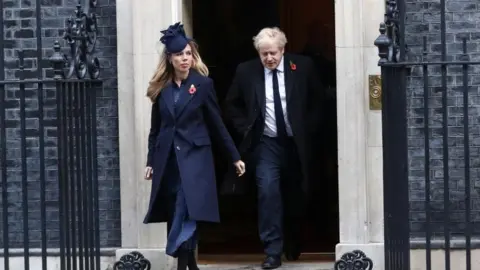 Reuters
ReutersAnd Liberal Democrat leader Ms Swinson said people should pause to reflect and remember how "fragile" peace can be.
The trio were joined at the commemorations by the SNP's Westminster leader Ian Blackford and the DUP's Nigel Dodds.
Elsewhere, Scotland's First Minister Nicola Sturgeon laid a wreath at the Stone of Remembrance at Edinburgh City Chambers before giving a reading at the service at St Giles' Cathedral.
In Northern Ireland, Irish Prime Minister Leo Varadkar laid a green laurel wreath at the war memorial in Enniskillen, County Fermanagh, on behalf of his government.
Ceremonies also took place across Wales, including at the Welsh National War Memorial in Cardiff.
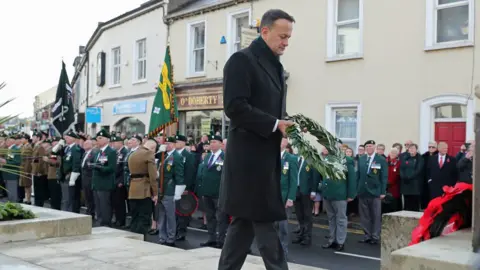 Niall Carson
Niall CarsonThis year marks 100 years since the first two-minute silence was observed to mark Armistice Day on 11 November 1919.
The UK's Chief of Defence Staff, General Sir Nick Carter, told BBC One's Andrew Marr show it was important to remember that Remembrance Sunday was not only about older people and previous generations.
Gen Carter - Britain's most senior military officer - said many who participated in the commemorations were young men and women who fought in places such as Afghanistan.
"We have to remember the living veterans as well who have a huge amount to offer to society," he added.
The ceremony at the Cenotaph came after Prince Harry, Meghan, Prince William and Kate joined the Queen at London's Royal Albert Hall on Saturday for the Festival of Remembrance.
It was their first appearance as a group since Harry and Meghan said they were struggling with public life.
